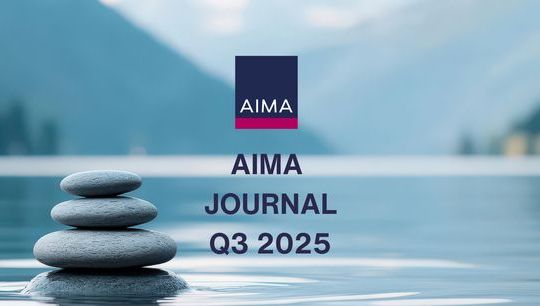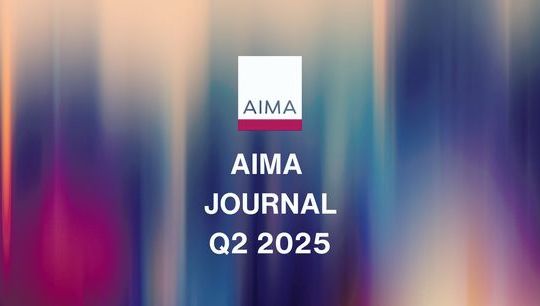Private debt funds in Luxembourg
By Michelle Barry; Johan Terblanche, Maples Group
Published: 21 March 2022
Private debt and private debt funds have become an essential source of financing for companies (and in particular small-and-medium-sized enterprises (SMEs) as well as the real economy and are now a permanent fixture in the alternative investment fund space. Persistently low interest rates, companies’ demand for financing and the hunt for yield among investors have been contributing factors to the success of private debt over the past decade, which prior to the global financial crisis was considered a niche asset class. While the private debt market in the US is the largest and most mature, the European and Asian private debt markets have grown considerably in recent years. Market sentiment in the European Union (EU) remains highly positive across all market segments.1
In Luxembourg, the evolution and growth of this alternative source of financing has accelerated year-on-year with Luxembourg private debt funds’ assets under management (AuM) increasing by 41% in the past year alone.2 By June 2021, AuM in private debt funds domiciled in Luxembourg had surged to €181.7 billion.3 This builds on the significant growth experienced in 2020 and the growth outlook for the private debt market heading into 2022 and beyond remains strong.
Impact of COVID-19
Notwithstanding the growth experienced in 2020 and 2021 or the healthy outlook for the future, the private debt industry has also had to navigate COVID-19 over the past two years. The nature, the duration and the uncertainty of the pandemic have resulted in many challenges to all areas of the global economy and the private debt sector is no exception. It was the first economic downturn faced by the European private debt industry and it undoubtedly slowed down the exponential (and generally uninterrupted) growth the industry had been experiencing in the aftermath of the 2008 global financial crisis and led to drop-offs in deal flow as well as fundraising as investors paused allocations at the beginning of the pandemic.
By contrast, COVID-19 has also offered some private debt funds, who were fortunate enough to have significant capital commitments, an opportunity to engage in new business activity and capitalise on transactions in the opportunistic credit, distressed and special situations spaces. In addition, direct lending strategies continued to be a popular investment strategy of private debt funds during the pandemic. As the focus shifts to post-pandemic recovery efforts, private debt can play an important role in the recovery of the global economy by meeting additional liquidity needs of borrowers and providing an alternative source of finance to companies where access to traditional bank financing, for one reason or another, is in decline or has declined or where traditional bank financing is not the preferred source.
Private debt funds in Luxembourg
Luxembourg remains the preeminent European jurisdiction for private debt investment funds and the structuring options available to these types of funds are vast and varied. Private debt funds in Luxembourg may be established as unregulated or regulated structures. Within these two categories, various types of vehicles are available. Unregulated limited partnerships have, however, generally become the vehicle of choice for most managers which wish to establish private debt funds that are domiciled in the EU.
In circumstances where it is preferable to establish a fund which is subject to a regulatory regime, the reserved alternative investment fund (fonds d’investissement alternatif réservé, the ‘RAIF’) and the specialised investment fund (fonds d’investissement spécialisé, the ‘SIF’) are most frequently used. In contrast, the investment company in risk capital (sociétés d’investissement en capital à risque, the ‘SICAR’) is seldom chosen on account of its restricted investment policy. The application of one of these regulatory regimes can provide additional structuring flexibility and help to accommodate specific commercial and regulatory considerations.
A wide range of different factors, including the choice of available legal vehicles, the likely preferences of target investors and the extent of local regulation, will influence and determine the fund structure which the manager of a private debt fund ultimately selects and implements.
Luxembourg limited partnerships
The legal framework for limited partnerships has existed in Luxembourg for over a century. However, in 2013, the Luxembourg legislature modernised the Luxembourg limited partnership regime by revamping the legal regime of the common limited partnership (société en commandite simple, the ‘SCS’) and introducing a new type of partnership vehicle – the special limited partnership (société en commandite spéciale, the ‘SCSp’). Luxembourg’s limited partnership regime now comprises three types of limited partnership: (i) the SCSp; (ii) the SCS; and (iii) the corporate partnership limited by shares (société en commandite par actions, the ‘SCA’). This has set the scene for limited partnerships, and specifically the SCSp, to become the legal vehicle of choice for private debt funds established in Luxembourg, with 88%4 of unregulated debt funds formed as SCSps.
The regimes for the SCSp and the SCS are modelled on the successful Anglo-Saxon limited partnership regimes and offer features similar to foreign partnership regimes applicable in England, Scotland, Delaware and other common law jurisdictions. By contrast, the SCA is incorporated under Luxembourg law and exhibits a number of corporate and partnership characteristics, so that it is a hybrid entity. An SCA is entitled to make elections about its treatment which are respected under the laws of various foreign jurisdictions, including the USA. This can avoid difficulties with entity classification rules which might otherwise arise.
Each limited partnership is formed under the Luxembourg law of 10 August 1915 on commercial companies, which contains a number of provisions particular to each respective type of limited partnership. Such provisions in respect of the SCS and SCSp are very limited and therefore they afford great structuring flexibility and contractual freedom.
Each limited partnership will also be subject to Luxembourg’s general commercial and civil rules. In addition, a Luxembourg limited partnership will be subject to a specific Luxembourg funds law if it elects for that law to apply to it and, to the extent applicable, the supervision of the Commission de Surveillance du Secteur Financier, Luxembourg’s financial regulator (CSSF).
AIFMD and beyond
The majority of private debt funds set up in Luxembourg qualify as alternative investment funds (AIF) and fall within the scope of the regulatory framework of the Alternative Investment Fund Managers Directive (AIFMD). While private debt funds have thrived under the AIFMD framework, the uptick in popularity of private debt funds has led to increased regulatory scrutiny and regulation in this sector is likely to increase.
This is particularly true in the context of debt originating funds, i.e., ‘loan originating funds’, where the European Commission (Commission) proposes to introduce a new and specific regime for alternative investment funds managers (AIFMs) managing loan-originating AIFs (LOAIF)5. The Commission has cited regulatory fragmentation in the private debt market as well as the need to react to market-wide effects and to promote an efficient internal market to support the implementation of a LOAIF regime.
Under the Commission’s proposal, such AIFMs would be required to implement (and annually review) policies and procedures for granting credit, credit risk assessment and administering / monitoring the credit portfolio, and ensure:
- that any loan to a single financial undertaking6 or a fund borrower does not exceed 20% of the LOAIF’s capital;
- the LOAIF does not lend to the AIFM or its staff, the depositary or a delegate of the AIFM (e.g., an investment manager); and
- the LOAIF retains 5% of the notional value of loans originated by it and subsequently sold.
To mitigate the risk of liquidity mismatches, it is also proposed that a LOAIF must be closed-ended if the notional value of its originated loans exceeds 60% of its net asset value.
The consultation process is well under way and a range of stakeholders have provided feedback to the Commission in relation to potential rules around loan origination, some of which could lead to further development, expansion and growth of a vital source of funding.
ESG considerations and conclusion
Many private credit managers already integrate environmental, social, and governance (ESG) factors into their investment strategies and they are a driving force behind engagement with businesses on sustainability. With the focus on ESG issues growing, responsible investing, sustainability and ESG are becoming ever more important factors for private debt strategies. In addition, private debt is already playing a vital role in supporting the sustainability transition among SMEs and mid-market companies.
The upward trajectory enjoyed by the private debt market to date looks set to continue for the foreseeable future and there are a number of trends that will shape the private debt industry. Two of these trends are: a) the Commission’s proposal to amend the AIFMD and address (at least to a certain extent) the lack of homogeneity in the different European jurisdictions with respect to loan originating funds and b) responsible investing and ESG issues, which dominated the regulatory and public arena prior to COVID-19 and continue to be focal points.
Crucially, whatever the future holds, it will be necessary to ensure that the current and future regulatory environment does not impede the continued development of the private debt market.
In Luxembourg, the Maples Group provides full service legal advice through our independent law firm, Maples and Calder (Luxembourg) SARL, which is registered with the Luxembourg Bar.
1 EIF Private Debt Survey 2021: Private Debt for SMEs – Market Overview.
2 Association of the Luxembourg Fund Industry (ALFI) Private Debt Fund Survey 2021.
3 ALFI Private Debt Fund Survey 2021.
4 ALFI Private Debt Fund Survey 2021.
5 Note the investment restrictions in the proposal are without prejudice to applicable limits for ELTIFs, EuVeca or EuSEF funds.
6 As defined in Solvency II, primarily being an entity authorised to provide a regulated financial service in the EU such as credit institutions,(re-) insurers and MiFID firms.







